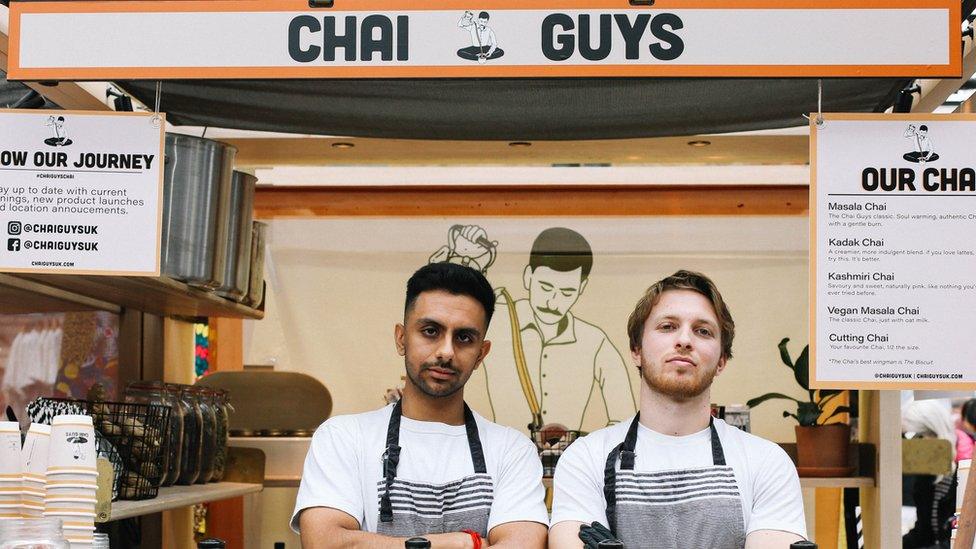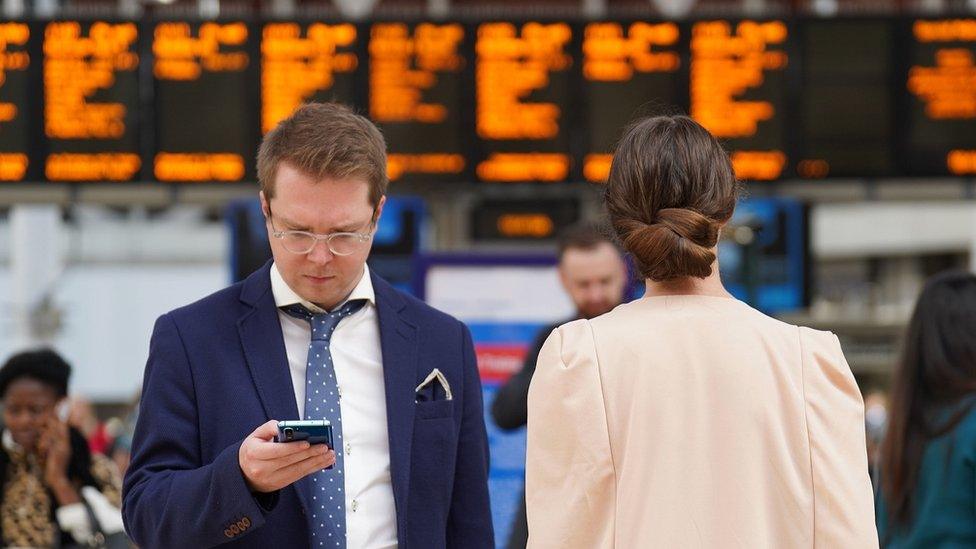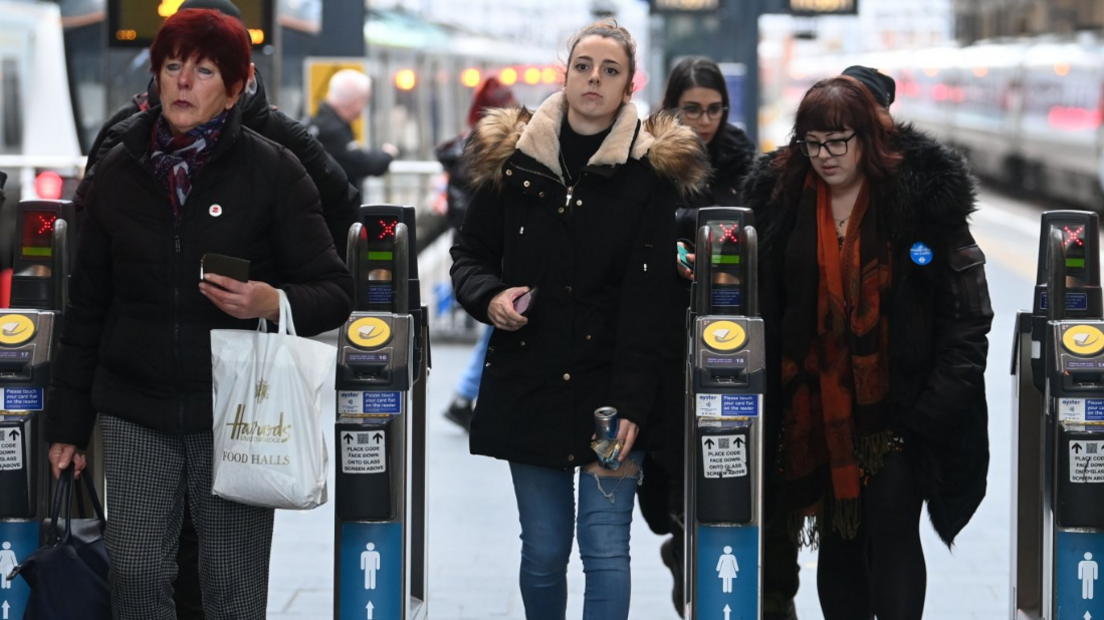The train passengers facing festive disruption
- Published

Amelie says she is having to miss a week of lectures to get home for Christmas
Many thousands of people are expecting their festive plans to be disrupted by the rail worker strikes.
Amelie, who is a student at Exeter University, says she has had to change her train tickets four times due to the walkouts this month.
The 19-year-old had planned to travel to her family home near Middlesbrough on 16 December, but is now making the journey a week earlier on Friday to avoid any further disruption.
"I'm missing a full week of teaching - it's not great for my degree," says the theology and religion student, who highlights that her studies have already been hit by the university strikes.
The second-year student says she's lost between £50 and £60 through having to rebook trains and fears she will have to rearrange her return train journey due to more strikes planned in early January.
She says she can understand the reasons for striking, but adds: "We are all in the same cost-of-living crisis.
"It's an unfair deal for everyone really. I'm all for making a stance and justice but not when it's affecting every single group of people - taking out education which is so vital."
Some 40,000 workers that are members of the UK's biggest rail union, the RMT, will walk out in a series of strikes across four 48-hour periods - on 13-14 December, 16-17 December, 3-4 January and 6-7 January. Disruption is likely on the days around the strikes as well.
A section of rail workers who are employed by Network Rail will also down tools from 18:00 GMT on 24 December until 06:00 GMT on 27 December.
The walkouts are the result of a long-running row over pay, jobs and conditions.
The RMT has blamed the government for blocking "attempts" by train companies "to resolve the dispute by making a revised and improved offer".
The union is calling for a settlement which offers "long-term job security, a decent pay rise and protecting working conditions".
RMT general secretary Mick Lynch has said he regrets the inconvenience caused but argues the government is ultimately to blame.
Jamie, who lives in Scunthorpe, says he fully supports the strikes and is due to travel on 23 December to spend Christmas with his partner and his family.
He explains that while he understands the aim of strikes "is to disrupt" he doesn't think "Christmas is the time to cause such uncertainty for people who are already struggling".
However, he believes it is the government who should step in and "do something about it".
He thinks everybody needs to sit back down at the negotiating table and "wake up to the fact workers deserve better, but passengers also deserve to get their money's worth".

Sarah Harris needs to travel between Kent and London by train on the day before strike action
Meanwhile Sarah Harris, 28, lives in Kent but works in London. Her work's Christmas party is on 15 December which is a non-strike day in-between strike days, meaning disruption to services is likely.
She fears she will either be stranded in London or have to leave early, which she'd "rather not do as it's a big event".
She adds that other travel plans she has before Christmas are also set to be disrupted. "I get the rail workers want a salary increase but don't we all," she adds.
It is not just passengers' festive plans that will be hit by the industrial action, but also businesses, particularly retailers and hospitality venues, in the run-up to the big day.
Having suffered for the past two Christmases due to Covid restrictions, many were hoping for a bumper year, but that might not be possible now due to the disruption.
Abhilash, a co-founder of Chai Guys, which brews and sells authentic Indian chai tea in Old Spitalfields Market and Covent Garden in London, says the previous rail strikes have resulted in footfall at his stores dropping by 15-20%.
He and his business partner Gabriel started the company in 2019 and managed to survive the pandemic by selling chai brewing kits online.
The 27-year-old says that while the rail strikes are "inconvenient" for people visiting London and buying chai, he just hopes the dispute between the unions and train companies will be resolved.

Abhilash (left) and Gabriel (right) see the strikes as an inconvenience for customers
"For me I understand the strikes, I understand the general sentiment in the country right now with how they feel," Abhilash says.
He explains how at this time of year businesses like his see a spike in footfall with people travelling to London to shop and see theatre shows.
But he says the strikes are discouraging people from going into the capital, which is hitting retailers' profits.
However, having launched the business in 2019 and being forced to close during Covid lockdowns, Abhilash says he and Gabriel are used to being agile and will "do whatever we can to maintain our business".
The RMT has staged a series of strikes since the summer which have cause widespread disruption.
It has rejected an offer from train operators and plans to hold a referendum for members over a second deal from Network Rail, which it has urged them not to back.
Tim Shoveller, Network Rail's chief negotiator, has accused the union of "using the British public and Network Rail workers as pawns in a fight with the government".
Update: This story has been updated to remove an interview with an individual whose travel plans are unlikely to be affected by the strikes.
Additional reporting from the BBC's UGC team.
Related topics
- Published6 December 2022

- Published6 December 2022
